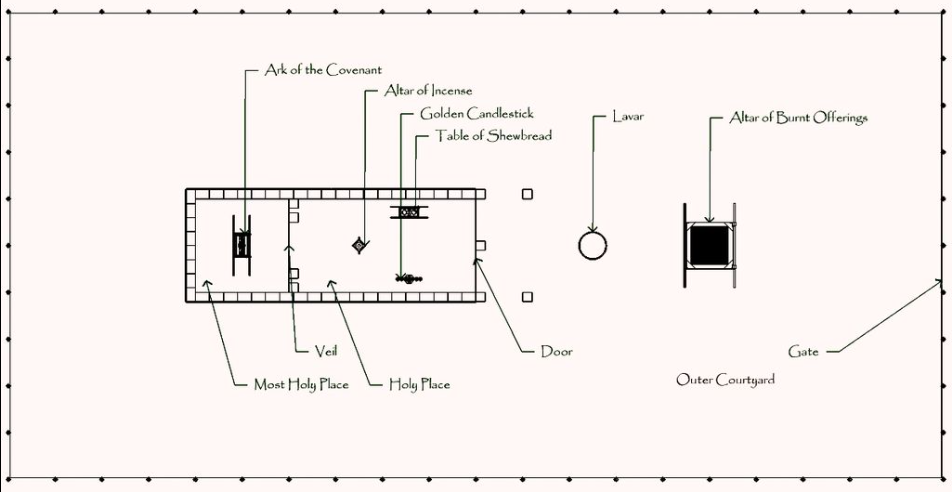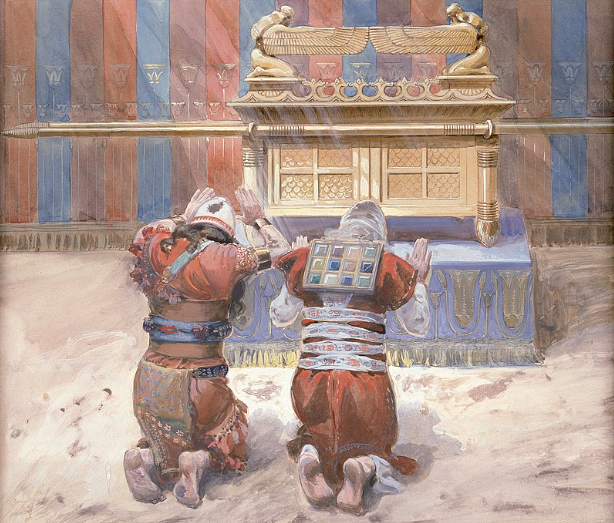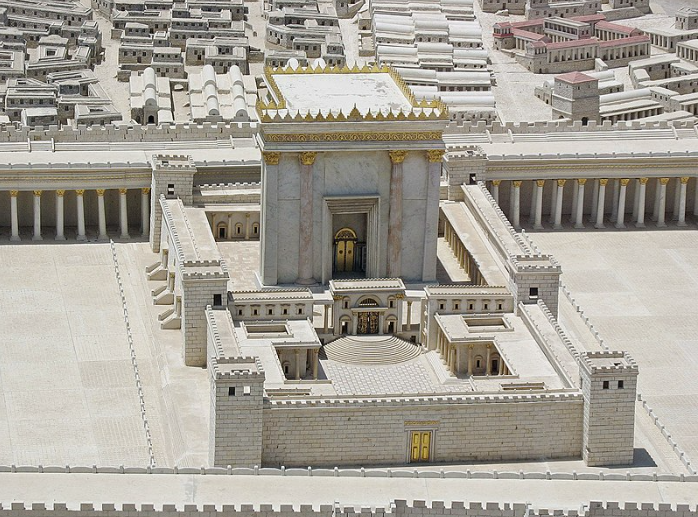-
 @ crrdlx
2025-05-19 17:01:54
@ crrdlx
2025-05-19 17:01:54Keys and Religion
Mixing
Normally, I'm not a fan mixing and comparing bitcoinesque things and religion. It's too banal and trite, too easy: the religion of Bitcoin, the allusion of Satoshi the savior, the "Book of Satoshi," even the "Genesis" block. But, today, I'll break my own rule.
Yesterday, I heard a Christian pastor speak of the "keys of the kingdom." My feeling is that, were you to ask the average Christian, "What is the key, or keys, to the kingdom?", and perhaps I'm wrong on this, but I think they'd answer, "Prayer." I've heard it many times, "Prayer is the key to the kingdom." It's an easy mantra to remember. And, prayer is important for a Christian, no question about it. However, Biblically, the phrase "keys of the kingdom" refers to something else.
As the pastor pointed out yesterday, Biblically there are two keys: the binding key and the loosing key. This refers to Matthew 16:19 where Jesus says:
I will give you the keys of the kingdom of heaven; whatever you bind on earth will be bound in heaven, and whatever you loose on earth will be loosed in heaven. Matthew 16:19 (NIV)
For context, back up a few verses. This statement above was made in a conversation between Jesus and his disciple Simon Peter.
15 Jesus asked, “But what about you?” he asked. “Who do you say I am?” 16 Simon Peter answered, “You are the Messiah, the Son of the living God.” 17 Jesus replied, “Blessed are you, Simon son of Jonah, for this was not revealed to you by flesh and blood, but by my Father in heaven. 18 And I tell you that you are Peter, and on this rock I will build my church, and the gates of Hades will not overcome it.
Although brief, this is a deep and rich exchange. Traditionally, this has been viewed as the moment that Christ instituted the Christian church, the passing of power and authority to the early church itself. There has been confusion over it too, particularly the "...on this rock I will build my church..." part of it. Jesus was referring to Simon Peter's statement of faith (...for this was not revealed to you by flesh and blood...) with the "this" being what Peter had just said, "You are the Messiah, the Son of the living God." The church would be built upon the rock of faith in Jesus as the Messiah.
The early Christian church thus established, Jesus instituted what's come to be called the "office of the keys." That is, Jesus grants authority to his "appointees" in the church to carry out his authority. In more practical terms, this is referring to those who have been called into church service, normally priests, to forgive or not forgive sins. When a priest or pastor forgives, or not, it is not that he is doing it by his own right or power. That priest is, after all, yet another sinful man as well. Instead, the priest forgives by Christ's authority which was handed down by Jesus himself in those words to Peter.
To use an analogy, suppose a general had to make a decision about foot soldiers on the front line, waiting there in the trenches. Due to some time constraint, a decision for action was needed imminently. However, suppose the general lacked some bit of information that could only be obtained at the front. So, the general wrote up a communique to the lieutenant stationed at the front saying, "You assess the situation, and you make the call, charge or pull back. I'll support your decision." A courier ran to the front, relayed the message to the lieutenant, and the lieutenant assessed and made the decision. Ultimately, even thought the lieutenant made the decision, the authority behind the decision lay with the general who had transferred his authority to the lieutenant.
This authority or office of the keys is mirrored in John 20:22-23, when the resurrected Jesus appears to his disciples and says, "If you forgive anyone’s sins, their sins are forgiven; if you do not forgive them, they are not forgiven.”
Going just one step further, recall there are two keys involved, binding and loosing, and there are two places involved, earth and heaven. Usually, priests and pastors are "in the business" of forgiving. Penitence or confession, when real, is forgiven. The priest has the authority to forgive, or "loose" the sinner from his wrongdoings here on earth. And, that forgiveness applies to heaven as well, the sin is atoned and reconciled with God.
But, what about when the person is unrepentant, unbothered by what is Biblically sinful, refuses to change his ways, and rather chooses to continue in sinful ways? The "binding" key says that the priest or appointed church leader can hold that person accountable, can bind that person to the sin and separation from God. Normally, we hear of "excommunication" from the church which is formally stating that a person is outside of the church body. The binding keys still bind, both on earth as being outside of the church and in heaven as being separated from God.
And bitcoin?
That's a lot of religion, and heavy religion at that. The question is, what does this have to do with bitcoin?
Keys.
Namely, this is about public and private keys. Loosing and binding keys. A bit more religion, then I'll get back to bitcoin.
Yesterday, the pastor spoke briefly about binding and loosing keys, and this where my thoughts about keys somehow morphed over into bitcoin. For some reason, I pictured Herod's Temple. There had been Solomon's temple, which was destroyed, and then there was Herod's which was known for its beauty and was the one during Jesus's time. But, let's recall the background on this...
The book of Exodus, and others in the Old Testament, outline in detail God's plan for the tabernacle (a traveling tent) and for the temple in Jerusalem.

The tabernacle, overhead diagram. Image source: https://en.wikipedia.org/wiki/Tabernacle
You might recall the "history" lesson in Raiders of the Lost Ark. With the tabernacle and temple, one of the purposes was to house the ark of the covenant. Remember that the ark was the golden box that the Israelites carried around containing Moses's stone tablets with the Ten Commandments, some manna, and Aaron's staff. It held great power, God's power, and God literally met and spoke with the Levite priests hovering over the cherubim's wings.

The ark of the covenant. Image source: https://en.wikipedia.org/wiki/Ark_of_the_Covenant
In the tabernacle and temple, the "Holy of Holies" was a room, separated by a heavy curtain. It was off limits to all because it was, well, holy of holies. A heavy curtain divided the Holy of Holies, or the "Most Holy Place", from the less-holy, "Holy Place."
Once a year, on the Day of Atonement, one person, the chief priest, was allowed to walk into the Holy of Holies. He would sprinkle the blood of a sacrificed animal onto the ark. This was done for the forgiveness of the people's sins. Although this was pre-Jesus's words, this was using the loosing keys and was loosing sin.
This was serious business and was taken seriously. For instance, the priests Nadab and Abihu improperly performed their sacrificial duties, they messed up the procedure, and were consumed by fire. Priesthood was a dangerous occupation, one slip up and you were scorched.
 The second temple, "Herod's Temple". Image source: https://en.wikipedia.org/wiki/Second_Temple
The second temple, "Herod's Temple". Image source: https://en.wikipedia.org/wiki/Second_TempleBack to keys...
Yesterday, for some reason when I heard about binding and loosing keys, I imagined the chief priest standing in front of the curtain. I imagined him taking a deep breath, collecting his thoughts, getting ready to go in. It had to be intimidating.
As he stood there, in my mind, he and everyone else was shut out. The Most Holy Place was bound and locked. Walking in meant getting scorched (again, the end of Raiders of the Lost Ark). Yet, that priest had the loosing key. He had, first, permission as chief priest to enter on the Day of Atonement, secondly, he had the sacrificial blood to loose sins. Although the binding key had locked the Holy of Holies and thus bound the sins of the people, the loosing key was about to loose their sins.
Cryptographic keys
And back to bitcoin...
Bitcoin, and cryptography in general, operate on public and private keys. Any flavor of "cryptocurrency", or even Nostr, has public and private keys. In a way, these are binding and loosing keys.
Say you have 1.0 BTC (that's 100,000,000 sats 😀). That BTC exists as a UTXO which can be seen by anyone viewing your public address. In this way, your bitcoin public key is your binding key...that UTXO, that bitcoin, is bound to your public key...it is locked in place behind that heavy curtain. It will be there forever, unless there is an intervention...
You also have your private key, your loosing key. You can apply your private key to loose that UTXO, that bitcoin, and to send it along to wherever.
This is like law and gospel: sin is binding, however Jesus frees it. A bitcoin UTXO is bound until a private key looses it.
Nostr offers a somewhat similar illustration. You have an npub publicly and and nsec secretly or privately. If you were to write a note, your private nsec is needed as a loosing key to free that message, to broadcast it to the world. Once broadcast, it can be seen by all, however it is still inextricably bound or tied to your public key (your npub). Your npub is your binding key and your message is bound to it.
Summed
I'm not sure this binding and loosing keys in religion, and public and private keys in cryptography is the best comparison in the world. It's probably a terrible comparison. But, this is what came to my mind yesterday.
And, so, the mixing of religion and bitcoin is now officially over.